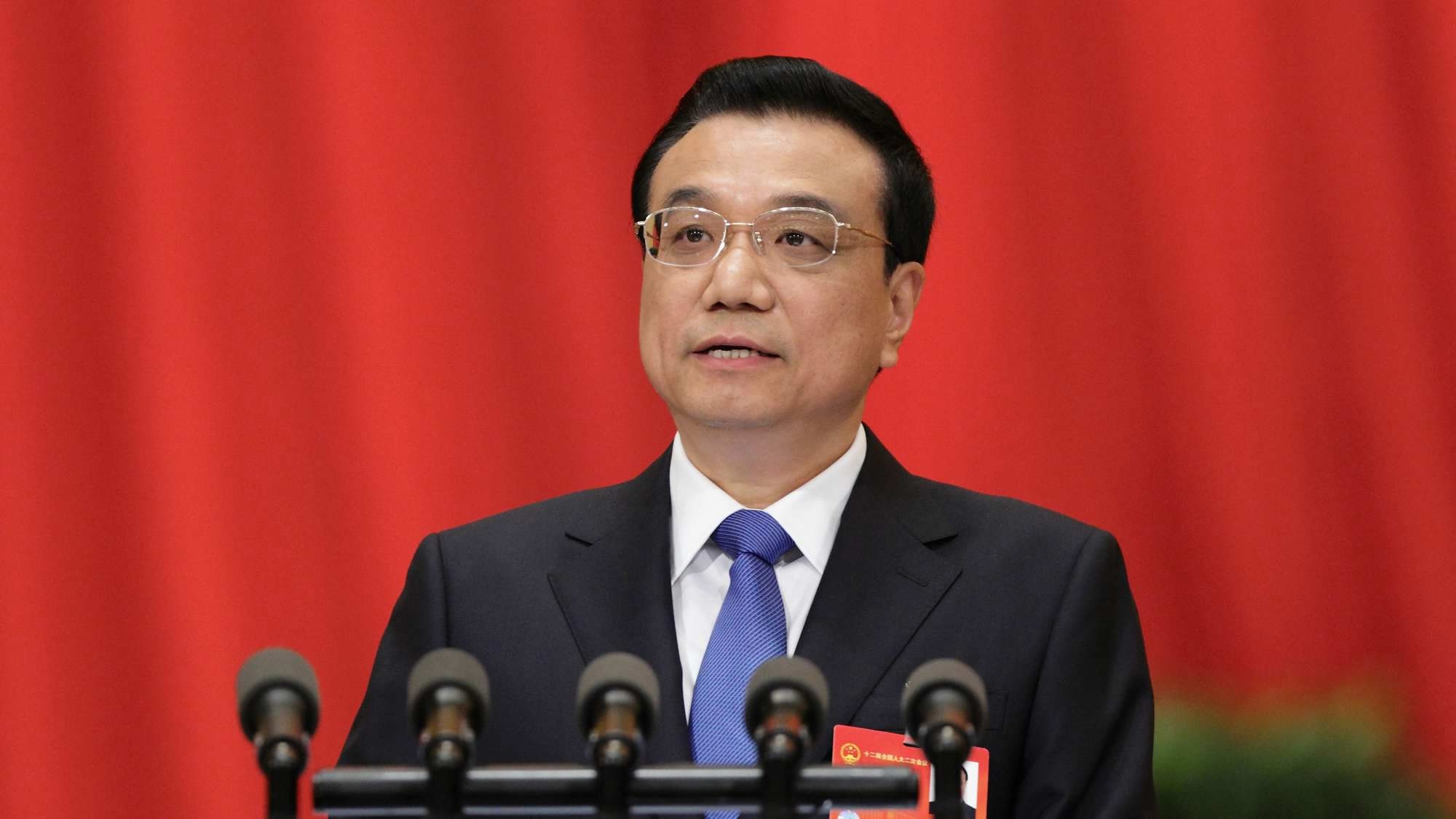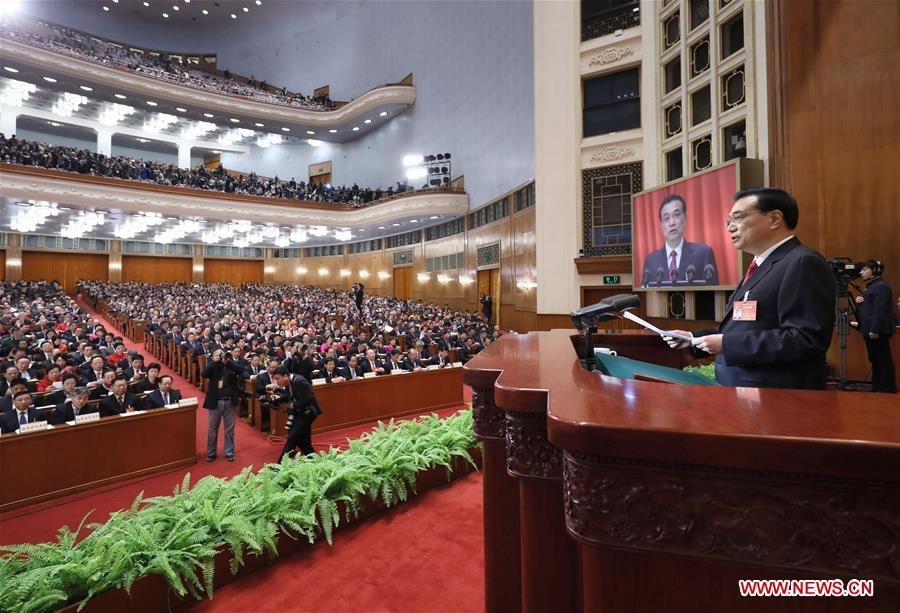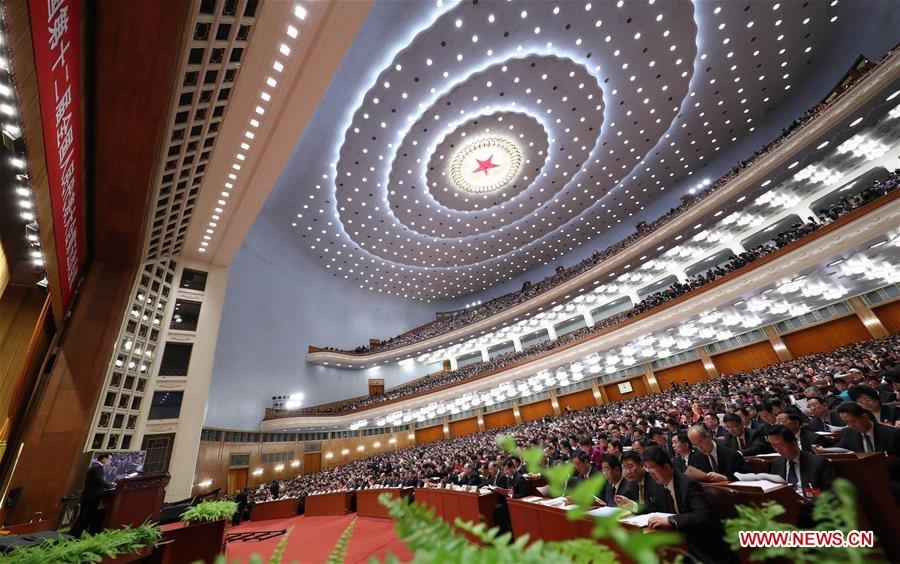
Politics
19:26, 06-Mar-2017
Analysis: Making sense of the Government Work Report
Updated
10:58, 28-Jun-2018

Guest commentary by Einar Tangen
Beijing may have been graced with blue skies for the opening of the annual “two sessions,” but the event was overshadowed by the uncertainty created by President Donald Trump. Against this backdrop, Chinese Premier Li Keqiang delivered the annual Government Work Report to the National People’s Congress (NPC), China’s law and policy making body.
The Government Work Report covers the previous and coming year's work; it is given by Premier Li, as head of the State Council, the administrative side of the government charged with implementing the policies and goals of the NPC. Keep in mind that China works off a series of Five-year Plans, approved by the NPC, therefore each report is like a report card and laundry list of what has gone on and what more needs to be done to achieve the goals of each Five-year Plan.

Chinese Premier Li Keqiang delivers the Government Work Report during the fifth session of China's 12th National People's Congress (NPC) in Beijing, March 5, 2017. /Xinhua Photo
Chinese Premier Li Keqiang delivers the Government Work Report during the fifth session of China's 12th National People's Congress (NPC) in Beijing, March 5, 2017. /Xinhua Photo
For this reason, for people unfamiliar with China’s governance structure and operations, reading them can be a bit turgid, as it constantly frames past, current and future work, as part of the Plan. For the Chinese side, it is about continuity, where additional words or changes, to even a few sentences, can signal significant developments.
This year, the most significant addition has been the addition of the reference to Xi Jinping as “the leadership core of the Party Central Committee,” an accolade that has only been given to four leaders in modern China’s history. For many, on the outside, this is seen as a consolidation of personal power by Xi, but for many within China, it is seen as an indication of a resolve to follow through on what is deemed necessary, to move China forward past the “Middle Income Trap” in a world in the midst of a paradigm shift. The aim is to move China from a post-industrial economy to an emergent technological economic, political and social reality.
While there can be differences on how these points could be interpreted, what has been made clear by Li is that, domestically, China is girding itself to confront its asset bubbles, debt bombs, industrial overcapacity, immature financial systems, inefficient SOEs, lagging provinces, defense needs and the economic and social welfare of its rural and migrant workers. To address these concerns, Premier Li has proposed to reduce China’s growth target for 2017 to 6.5 percent, cap its military spending at 1.3 percent of GDP, lower SME taxes as well as a litany of poverty reduction, innovation and environmental measures, as well as structural changes to the country’s financial systems and SOEs.

Chinese Premier Li Keqiang delivers the Government Work Report during the fifth session of China's 12th National People's Congress (NPC) in Beijing, March 5, 2017. /Xinhua Photo
Chinese Premier Li Keqiang delivers the Government Work Report during the fifth session of China's 12th National People's Congress (NPC) in Beijing, March 5, 2017. /Xinhua Photo
Internationally, Premier Li indicated that China will take a more proactive role in promoting regional and international trade and cooperation, based on mutual benefit; with initiatives like the Belt and Road Initiative (BRI) and a Pacific Free Trade Pact. As Fu Ying, spokesperson for the annual session of the National People's Congress, said, "In China, we have our own beliefs about the world and about ourselves. We are a developing country and we believe in partnership and we never want to be imposed on and we will not impose on others," and then in response to questions about the US and Trump’s America First policy, "I think we'll take our own path."
In short, China has chosen to literally follow its own path, to act as an organizer on the international stage, while attending to its domestic needs.
(Einar Tangen is an author, columnist and commentator. The article reflects the author’s opinion, not necessarily the view of CGTN.)

SITEMAP
Copyright © 2018 CGTN. Beijing ICP prepared NO.16065310-3
Copyright © 2018 CGTN. Beijing ICP prepared NO.16065310-3